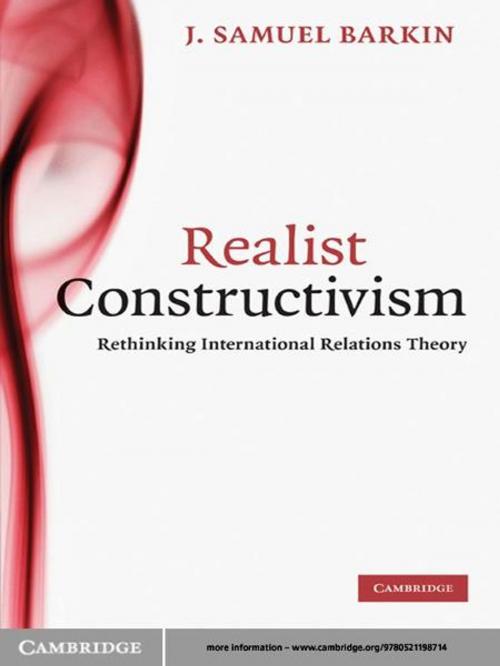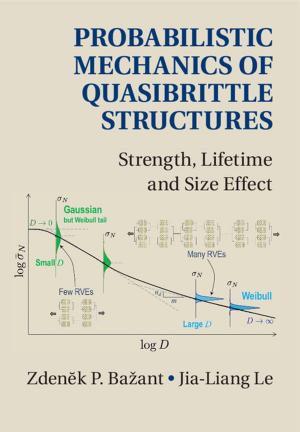Realist Constructivism
Rethinking International Relations Theory
Nonfiction, Social & Cultural Studies, Political Science, International, International Relations, Religion & Spirituality, Philosophy| Author: | Professor J. Samuel Barkin | ISBN: | 9780511847219 |
| Publisher: | Cambridge University Press | Publication: | March 25, 2010 |
| Imprint: | Cambridge University Press | Language: | English |
| Author: | Professor J. Samuel Barkin |
| ISBN: | 9780511847219 |
| Publisher: | Cambridge University Press |
| Publication: | March 25, 2010 |
| Imprint: | Cambridge University Press |
| Language: | English |
Realism and constructivism, two key contemporary theoretical approaches to the study of international relations, are commonly taught as mutually exclusive ways of understanding the subject. Realist Constructivism explores the common ground between the two, and demonstrates that, rather than being in simple opposition, they have areas of both tension and overlap. There is indeed space to engage in a realist constructivism. But at the same time, there are important distinctions between them, and there remains a need for a constructivism that is not realist, and a realism that is not constructivist. Samuel Barkin argues more broadly for a different way of thinking about theories of international relations, that focuses on the corresponding elements within various approaches rather than on a small set of mutually exclusive paradigms. Realist Constructivism provides an interesting new way for scholars and students to think about international relations theory.
Realism and constructivism, two key contemporary theoretical approaches to the study of international relations, are commonly taught as mutually exclusive ways of understanding the subject. Realist Constructivism explores the common ground between the two, and demonstrates that, rather than being in simple opposition, they have areas of both tension and overlap. There is indeed space to engage in a realist constructivism. But at the same time, there are important distinctions between them, and there remains a need for a constructivism that is not realist, and a realism that is not constructivist. Samuel Barkin argues more broadly for a different way of thinking about theories of international relations, that focuses on the corresponding elements within various approaches rather than on a small set of mutually exclusive paradigms. Realist Constructivism provides an interesting new way for scholars and students to think about international relations theory.















